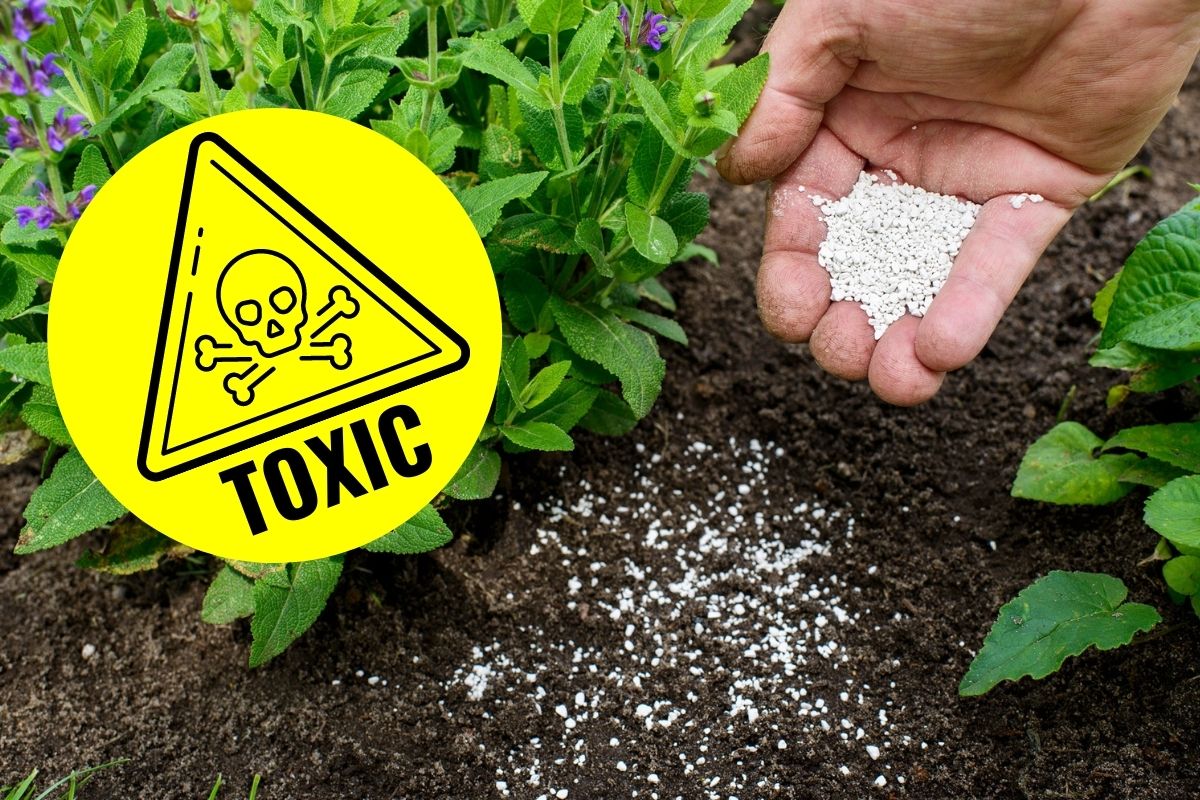by Scott Smith
Feeling at a loss about how to express your outrage at Russia’s invasion of Ukraine and the brutality Vladimir Putin’s forces are inflicting on Ukrainians?
Quit using synthetic fertilizers on your lawn and garden. It’s also a terrific way to celebrate Earth Day on April 22 right in your own backyard.
While it’s well known that Russia is a major exporter of oil and gas, mostly to European nations, the corrupt regime is also heavily reliant on sales of synthetic fertilizer to fuel both its domestic economy and foreign aggressions. Indeed, Russia is the largest global exporter of fertilizer.
Last year, the U.S. imported $1.28 billion worth of fertilizer, including fully 96% of the potash necessary for healthy crops – adding up to 1 million short tons per year of potash from Russia. Potash salt, which provides soluble potassium, is one of the three critical ingredients of agricultural fertilizer along with nitrogen and phosphorus, reports The Morning Sun, an Indiana media outlet that serves area farmers and the businesses that support them. The article announced an agreement between a local firm and domestic supplier to provide U.S. farmers with 650,000 tons annually of white potash fertilizer, helping to strengthen domestic food security.
The hazards of synthetic fertilizers
Whether you are a backyard gardener or farmer planting thousands of acres of corn, the use of synthetic fertilizers creates serious environmental problems. Producing it requires a great deal of energy and fossil fuels. Natural gas accounts for 80% of the cost of ammonia fertilizer, a more accessible form of nitrogen used as fertilizer for crops. It’s a major source of greenhouse gas emissions, makes soil less healthy and pollutes waterways when it runs off fields, harming wildlife.
There’s a simple solution to weaning your plantings off costly, hazardous “blood fertilizers”: compost. Homeowners can make or purchase locally all the compost they need to improve their soil organically and nourish their plantings with a steady supply of nutrients and minerals, in just the doses that lawns, vegetables and flowers need. Read our recent “The Dirt on Composting” article for easy-to-follow tips.
Some American farmers are turning to modern, more sustainable methods to steer clear of synthetic fertilizers. On Adam Wolf’s 2,500 acres in Liberal, Missouri, part of a fourth-generation family-owned farm, he’s adding biologicals to reduce the amount of fertilizer needed to grow his crops. Biologicals, in basic terms, are comparable to probiotics for crops, explains Brian Johnson, a reporter for the local station KMBC. “Cut down on fertilizer, be better stewards of the soil by using these products and still make more money in the end by saving $100,000 in input costs,” Wolf told KMBC.
The current crisis in Ukraine “exacerbates a problem that predated the invasion,” says Karsten Temme, CEO of Pivot Bio, which uses microbes to pull nitrogen from the air in farm fields. As he told Fast Company, instead of relying on costly fertilizer from a massive, energy-intensive factory, “For us, the equivalent is to think about a microbrewery or a winery—a facility that would make yeast. It’s really replacing a railcar full of nitrogen fertilizer products with the equivalent of a handful of baker’s yeast.”
You can follow these tips on how to grow a great lawn and garden without synthetic fertilizers, pesticides and herbicides:
- Leave grass clippings on your lawn to break down and return nutrients to the soil (they are high in nitrogen)
- Compost autumn leaves, food waste and other organics to use as a soil amendment around your plantings
- Cover bare ground with mulch or dead leaves. They’ll suppress weeds while returning nutrients to the soil
- Plant natives – they are adapted to thrive in local soils
- Fertilize your lawn only if needed with slow-release organic fertilizer; fall is best to strengthen the roots and promote strong growth in the spring. Organic fertilizers don’t harm pollinators, birds, animals or humans and are biodegradable, sustainable and environmentally friendly. Look for organic brands Espoma, Dr. Earth, Neptune’s Harvest and Safer Brand. Visit the Organic Compatible Fertilizers page at beyondpesticides.org for a comprehensive listing of safe options
- Adjust your expectations of what a lawn is supposed to look like. It doesn’t have to be perfect!
To be sure, quitting synthetic fertilizers this season is largely a symbolic gesture, as sanctions have effectively halted trade with Russia. But there’s never a bad time or better reason to adopt organic gardening practices and to make your yard and the world around it a better place to live.
So, step up your purchases of food grown by farmers following sustainable practices and forego synthetic fertilizers in favor of using more compost as part of your organic lawn care (this FoA article can get you started on that front). And while you’re at it, be sure to plant sunflowers this spring. Not only are they great food sources for pollinators, birds and animals, the sunflower is also the national flower of Ukraine. Right now, it deserves every chance to stand tall and prosper.

